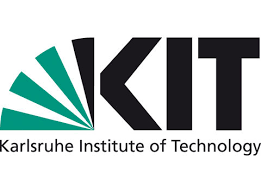Karlsruhe Institute of Technology: FestBatt: The next step in solid-state batteries
A further development of the lithium-ion battery could give electromobility the decisive impetus in just a few years. Professor Helmut Ehrenberg, coordinator of the characterization platform in the FestBatt competence cluster at the Institute for Applied Materials (IAM) at KIT, is convinced of this: “Solid-state batteries do without liquid and flammable electrolytes, their chemistry enables higher energy densities and shorter charging times. In addition, toxic and rare materials such as cobalt can be dispensed with. ”The FestBatt competence cluster, which was launched in 2018, is developing this key technology on behalf of the German government and is now starting the second funding phase. The work takes place in strong international competition – in order to open future markets for Europe as quickly as possible, the federal government has bundled the competencies of 17 scientific institutions with FestBatt. These include universities, Helmholtz institutes as well as institutes of the Fraunhofer Society and the Max Planck Society; the work is coordinated as a whole by the Justus Liebig University Giessen (JLU).
First steps towards mass production
The focus of FestBatt’s new funding phase will be the development of cell components and entire solid-state battery cells based on promising electrolytes, and material and process technologies for their production will also be developed. However, there are still a number of scientific and technological challenges to be solved before solid-state batteries can be mass-produced. The characterization platform coordinated by KIT with the participation of the University of Marburg, Forschungszentrum Jülich and JLU will, among other things, characterize contact and interfaces with X-ray, synchrotron and neutron radiation as well as various microscopy techniques on complex multiphase systems.
Advantage through systematic characterization
In the first funding phase of FestBatt, more than 100 researchers worked in transdisciplinary thematic platforms to identify suitable materials and to synthesize different solid electrolytes. The characterization platform systematically examined the materials: The most important influencing variables in the synthesis of solid electrolytes and critical material changes in composites were identified. The further development of solid-state batteries in FestBatt’s second funding phase is now building on this. It was only through the development of standardized measurement protocols that it was possible to reliably determine the performance characteristics and classify the very different cell concepts that are being developed with great intensity around the world.

